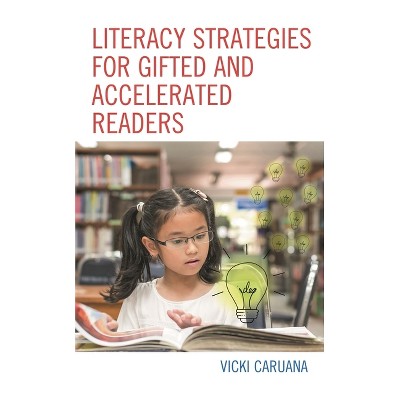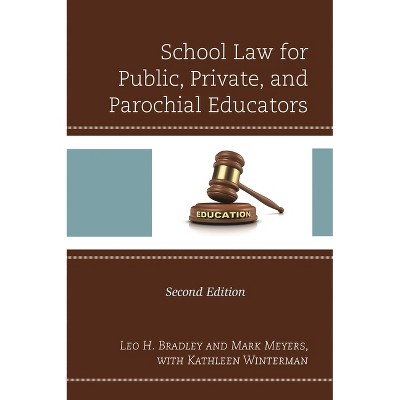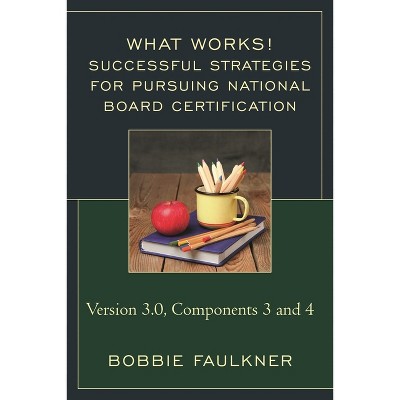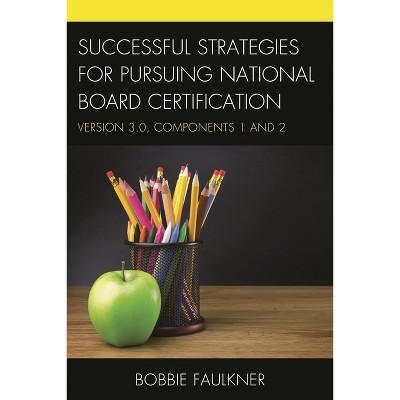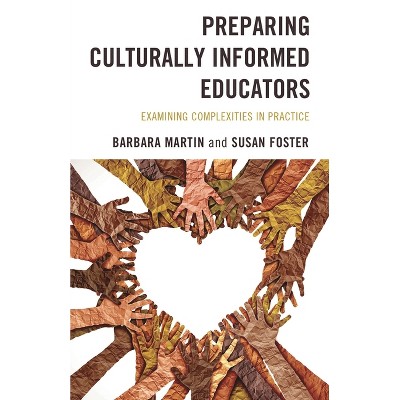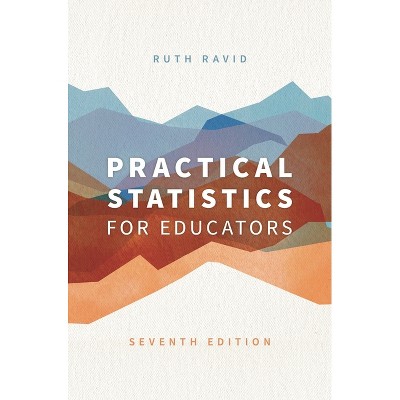Sponsored

Quality Instruction and Intervention Strategies for Secondary Educators - by Brittany L Hott (Paperback)
In Stock
Sponsored
About this item
Highlights
- This book offers a summary of evidence-based instruction followed by the most up-to-date empirically validated interventions for students with and at risk for disabilities in grades 6-12.
- About the Author: ContributorsJulie Atwood, Brittany Batton, B. Keith Ben-Hanania Lenz, Glenna Billingsley, Brennan Chandler, Amber Curlee, Erica Fry, Dave Furjanic, Nicholas A. Gage, Amber B. Ray, Angela Green, Brittany L. Hott, Jasmine Justus-McDowell, Sami Kahn, Tim Lintner, Ashley MacSuga-Gage, Darren Minarik, Jonté A. Myers, Jacquelyn Purser, Kathleen M. Randolph, John Romig, Jessica Singer Early, Tricia K. Strickland, Jonte' C. Taylor, Jessica R. Toste, Kelly J. Williams, Pamela Williamson, Bradley S. WitzelAbout the EditorDr. Brittany L. Hott is associate director of the Institute for Community and Society Transformation (ICAST) and associate professor of special education at the University of Oklahoma.
- 294 Pages
- Education, Classroom Management
Description
About the Book
This book offers a summary of evidence-based instruction followed by the most up-to-date empirically validated interventions for students with and at risk for disabilities in grades 6-12. Featuring key questions, case studies, essential vocabulary, and tools that can be used i...Book Synopsis
This book offers a summary of evidence-based instruction followed by the most up-to-date empirically validated interventions for students with and at risk for disabilities in grades 6-12. Featuring key questions, case studies, essential vocabulary, and tools that can be used in the classroom, this practical text is ideal for pre- and in-service teachers.
Review Quotes
Dr. Hott has assembled a group of experts in the field of education. Through their knowledge of best practices in teaching and learning, they have written a book that aids both general and special educators in meeting the needs of all secondary students. With an easy-to-read format, this book provides teachers with practical solutions for implementing evidence-based instructional methods in the classroom. Quality Instruction and Intervention Strategies for Secondary Educators is a must-have on the bookshelf of all secondary teachers!
Dr. Hott has done it again. She has produced an excellent resource for secondary educators across all the core subject areas, providing them with practical, evidence-based intervention strategies to ensure quality instruction for all students. This book is 'busy-teacher' friendly, providing comprehensive information grounded in research, co-written by highly-respected educators. Hott's book is in an easy-to-read format, with straightforward, nontechnical language. All secondary teachers will want to have this on their bookshelves!
Hott and colleagues have a clear message repeated throughout this wonderful collection--that instruction matters. We too often pay attention to compliance and placement, and what this resource reminds us (repeatedly) is that actual instruction to the students is what we really need to focus on. Great collection of chapters on all too forgotten students: secondary. Instruction really matters. Thanks to the authors for refocusing our attention to this.
I am highly impressed with Quality Instruction and Intervention Strategies for Secondary Educators. This uniquely targeted book delivers innovative perspectives on research-based instruction and interventions for secondary general education classrooms. It provides deep and thoughtful coverage of focused approaches for supporting diverse learners, especially those that struggle in inclusive settings. You will find that the text guides readers between effective instruction and essential interventions. This book is a must-read for all secondary educators.
Quality Instruction and Intervention Strategies for Secondary Educators is a must-read for pre-service secondary educators, middle school and high school administrators, and all secondary educators. Now, more than ever, educators need a resource like this to guide the planning and refinement of their pedagogy. The authors unpack the current research on effective, quality instruction and intervention for all students across a variety of disciplines. The chapters provide practical examples educators can implement immediately.
This book steps outside the mold of the traditional textbook and engages the reader in a new, fresh way with case studies. The layout of chapters provides important background information followed by practical application, all based in research, which is a format appealing to professionals in both general and special education. The contributors have adopted a practical, research-based approach that will enhance educator's classroom practice, which could lead to improved outcomes for students with disabilities.
This book's approach of using content experts and special educators to work together is a creative and highly needed approach to instruction of students with special needs. We talk inclusion and collaboration but often do not do this in higher education. This text shows how these two areas can be put into practice.
We know that children are not simply miniature adults and that adolescents are not simply large children. The challenges and abilities of adolescents are as different from younger children as the secondary curriculum is from the elementary curriculum. Dr. Hott's edited book is an excellent resource for teachers supporting adolescents with disabilities in the general education curriculum. Like many secondary school special education teachers, I was trained as an elementary teacher and then assigned to a high school. I wish that this text had been available to me. The clear explanations of powerful and evidence-based practices would have helped me in the same way that it will benefit most beginning and many experienced special educators.
About the Author
Contributors
Julie Atwood, Brittany Batton, B. Keith Ben-Hanania Lenz, Glenna Billingsley, Brennan Chandler, Amber Curlee, Erica Fry, Dave Furjanic, Nicholas A. Gage, Amber B. Ray, Angela Green, Brittany L. Hott, Jasmine Justus-McDowell, Sami Kahn, Tim Lintner, Ashley MacSuga-Gage, Darren Minarik, Jonté A. Myers, Jacquelyn Purser, Kathleen M. Randolph, John Romig, Jessica Singer Early, Tricia K. Strickland, Jonte' C. Taylor, Jessica R. Toste, Kelly J. Williams, Pamela Williamson, Bradley S. Witzel
About the Editor
Dr. Brittany L. Hott is associate director of the Institute for Community and Society Transformation (ICAST) and associate professor of special education at the University of Oklahoma. She is a licensed behavior analyst and special education teacher with interests in rural school-based interventions and the effective translation of special education research to rural practice. Her publication record includes over sixty peer-reviewed articles and program evaluations and over 100 national presentations. Her work is predominantly with rural deep east Texas and south east Oklahoma schools. Dr. Hott is a member of the executive board of the American Council on Rural Special Education and past president of the International Council for Learning Disabilities.






